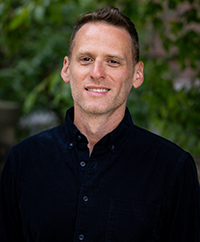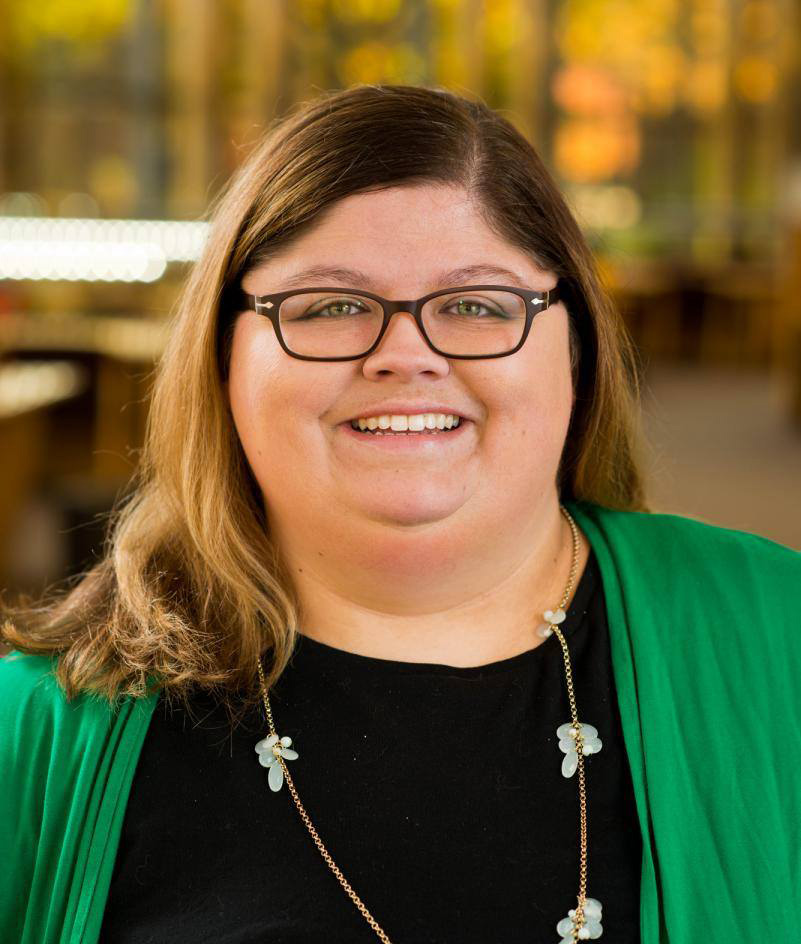UM-Flint receives $495K Mellon Grant to explore "Cracks in the Pavement"

"Rust Belt ghost town."
"One of the most dangerous cities in America."
A drinking water crisis.
Once considered a center for technological and intellectual innovation for most of the 20th century, Flint, Michigan's realities changed as General Motors, which has its very roots embedded in the city, moved most of its operations elsewhere, fundamentally shifting the town's economic base. Those moves then impacted the city government's ability to care for the community effectively and contributed to a decline in the city's population.
So, how does a struggling company town with a spirit of resilience and innovation rebuild itself in a post-democratic environment? How are Flint's hyperlocal community organizations practicing democracy outside traditional institutions?
Understanding, learning from, and cataloging the answers to these questions are at the heart of a new $495K grant from the Mellon Foundation received by the University of Michigan-Flint's College of Arts, Sciences & Education. Led by associate professor of sociology Jacob Lederman, assistant professor of political science Kimberly Saks and professor of political science Jason Kosnoski, the research project will explore and catalog Flint's democratic practices through an interdisciplinary lens.

"This is an opportunity to bring together scholarship, teaching and community-engaged student learning as we encourage each other to conceive of the practices of a democratic society beyond electoral politics," said Lederman. "What are the everyday ways that the Flint community comes together to meet each other's needs? We want to explore a more expansive notion of democratic practices and create a space for UM-Flint faculty and students to collaborate with community members on pressing social, political, and historical issues in our region."
This is the second grant from Mellon that the College of Arts, Sciences & Education has received. The previous $600K grant, awarded in 2020, supported the college's "Borders and Crossings: Exploring Global Questions at the University of Michigan-Flint" program. This program offered a series of immersive programs for UM-Flint students, including a road trip exploring the path of the Great Migration and its impact on Flint.
Grant-related activities will kick off with a community symposium this fall. Local and national speakers will share their perspectives and experiences, elevating new ways to enact democracy in spaces far from the halls of power. The symposium's key goals are to establish new collaborative relationships, record practices already in place, and set the stage for the subsequent phases of the project.
The next phase will focus on developing UM-Flint courses and modules that explore and reflect the theme "Cultures of Democracy" and offer students immersive experiences engaging with the community. During the winter and fall 2026 semesters, selected faculty members will participate in workshops to develop new curricula and course-related learning modules focused on rethinking the public sphere and democratic engagement. The grant will compensate community members invited to speak as guest lecturers supporting the new curriculum.
Undergraduate students will partner with Jan Furman, English professor emerita and director of UM-Flint's Urban Institute, where they will gain training in humanities approaches to studying democratic engagement and then work with faculty teaching grant-sponsored courses.
One of the courses that will launch as part of this project will revive the popular "Dancing in the Streets" community arts festival. The festival first occurred in fall 2023 and was supported by the "Borders and Crossings" grant. This new grant will fund its return for fall 2026 and 2027.
"As part of our first Mellon grant, I taught a course with dance instructor Emma Davis, which alternated between discussions of the political implication of dance and protest and movement exercises where students used dance to explore community and interaction," Jason Kosnoski said. "The class culminated in participating in the Dancing in the Streets festival, curated by local artist Tunde Olaniran, with whom we plan on collaborating again for the following two festivals."

Kosnoski's interest in the project originates in themes and questions he explored in his most recent book, "The Political Theory of Salvage."
"I examine how many contemporary social movements use salvage material in encampments such as Occupy Wall Street, squats and informal neighborhoods such as favelas in Brazil and how these materials encourage participants to adopt democratic values subtly," said Kosnoski. "Over the many years I've taught in Flint, I've seen residents undertake salvage efforts—such as activists in Occupy Flint, urban gardeners, and punks refurbishing abandoned houses—to effect what seem to be 'cracks in the pavement,' where people in a highly under-resourced city come together to both repurpose what others see as refuse and to form new egalitarian communities. These efforts are like seeds of hope bursting through a seemingly ruined landscape."
A significant component of the grant is cataloging Flint's successes in establishing democratic practices that work parallel with traditional institutions to rebuild the community. While the investigative team plans to highlight the achievements of organizations such as Edible Flint, 100K Ideas, Flint SOUP, and more, it also seeks to highlight those histories and democratic practices that have gone untold.
Flint has seen an influx of outside researchers studying its issues and environment. However, these researchers often leave without providing meaningful support to the community. From Kimberly Saks' perspective, this project will be set apart by centering and collaborating directly with Flint's community.

"This is a massive opportunity for us to do some pretty groundbreaking work on democracy in places like Flint, from a local perspective and within the community instead of looking at it from the outside," Saks said. "Where are people becoming civically involved in spaces where we might not think about it? People are very active in community groups in Flint, which isn't always reflected in Flint's image, so we must document what's happening. Flint offers inspiring lessons that would benefit other cities facing similar struggles. Our community is worth studying—and celebrating."
Related Posts
No related photos.
Kat Oak
Kat Oak is the communications specialist for the College of Arts, Sciences, and Education. She can be reached via email at katheroa@umich.edu.